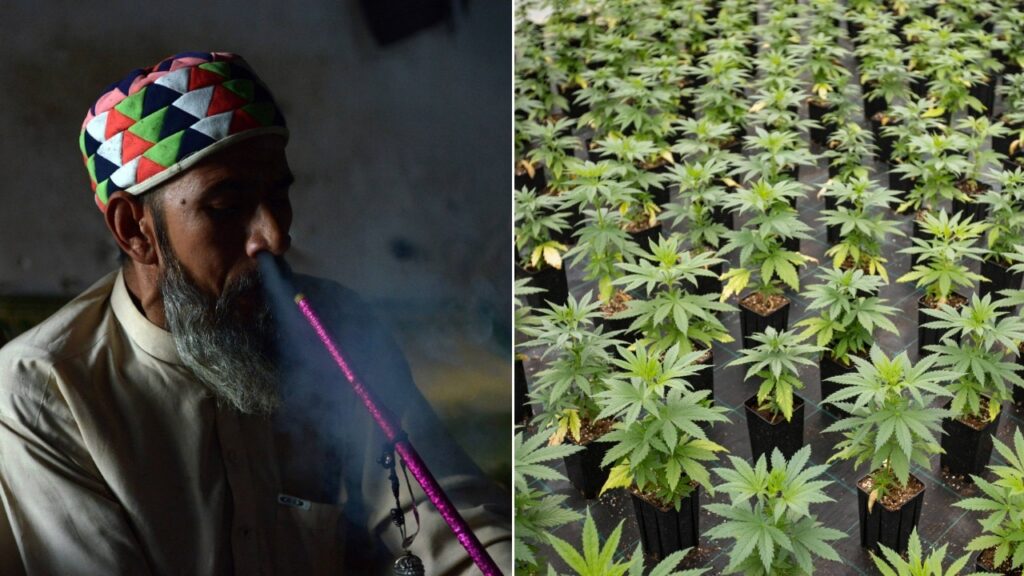Pakistan Legalizes Medicinal Cannabis: A New Economic Opportunity
Overview
In a significant move aimed at revitalizing its struggling economy, the government of Pakistan has taken steps to legalize cannabis for medicinal use. This strategic decision hopes to leverage the country’s favorable agricultural conditions to tap into the burgeoning global cannabis market.
Establishment of the Cannabis Control and Regulatory Authority (CCRA)
In February, Pakistan enacted an ordinance that led to the formation of the Cannabis Control and Regulatory Authority (CCRA). This body will oversee:
- Cultivation
- Extraction
- Refining
- Manufacturing
- Sales of cannabis derivatives for both medicinal and industrial applications.
According to reports from Nikkei Asia, this initiative is part of a broader strategy to generate revenue through export and attract foreign investment.
Economic Context
Pakistan is currently grappling with an economic crisis, exacerbated by soaring inflation rates that have reached 25% and economic growth that stands at a mere 1.9%—one of the lowest rates since the country’s inception. The Asian Development Bank describes the ongoing crisis as the worst in Pakistan’s history since its formation in 1947.
How Cannabis Could Boost the Economy
Syed Hussain Abidi, chairman of the Pakistan Council of Scientific and Industrial Research (PCSIR), explained that the government aims to leverage cannabis cultivation to enhance foreign reserves. Key benefits include:
- Export opportunities
- Domestic sales
- Attracting foreign investments
Abidi emphasized, “We are very serious about this initiative, and things are moving at a very fast pace.”
Global Cannabis Market Potential
The global cannabis market is projected to reach $64.73 billion in 2024, according to Statista. This presents a lucrative opportunity for Pakistan to position itself as a player in the cannabis derivatives sector.
Medicinal Benefits of Cannabis
Cannabis is not only recognized for its psychoactive properties but also for its medicinal benefits, including:
- Treatment for anxiety
- Relief from chronic pain
- Alleviation of symptoms for conditions like seizures
Adnan Amin, a healthcare professional in Pakistan, shared personal experiences with THC oil, stating, “My daughter’s seizures were reduced from 100 fits a day to some days going without fits thanks to this treatment.”
Regulatory Framework
The CCRA will consist of 13 members, including representatives from various government sectors and private entities. This regulatory authority was first proposed during Imran Khan’s tenure as Prime Minister. The creation of the CCRA underscores Pakistan’s commitment to regulating the cannabis business while adhering to international laws set by the United Nations.
Compliance and Penalties
The CCRA will establish strict regulations, including:
- A maximum tetrahydrocannabinol (THC) limit of 0.3%
- Penalties for misuse, ranging from PKR 1 million to PKR 10 million for individuals and PKR 10 million to PKR 200 million for companies.
Such regulations will not only cushion the legal framework but also curb illegal cannabis cultivation, particularly in regions like Khyber Pakhtunkhwa.
Farmer Insights
Local farmers are optimistic about this development. One farmer mentioned how the Taliban’s ban on cannabis cultivation in Afghanistan has allowed his business to thrive again. “When there used to be cannabis cultivation in Afghanistan, we would often struggle to recoup our investments,” he explained.
Conclusion: A Step Forward
While the regulatory framework is a promising step towards stabilizing Pakistan’s economy, time will tell whether the country can produce high-quality cannabis derivatives that can compete on the international stage. The establishment of the CCRA represents a significant shift in policy and could pave the way for a new era of economic opportunity in Pakistan.
For more information on cannabis legislation and its implications, visit Nikkei Asia and Statista.


